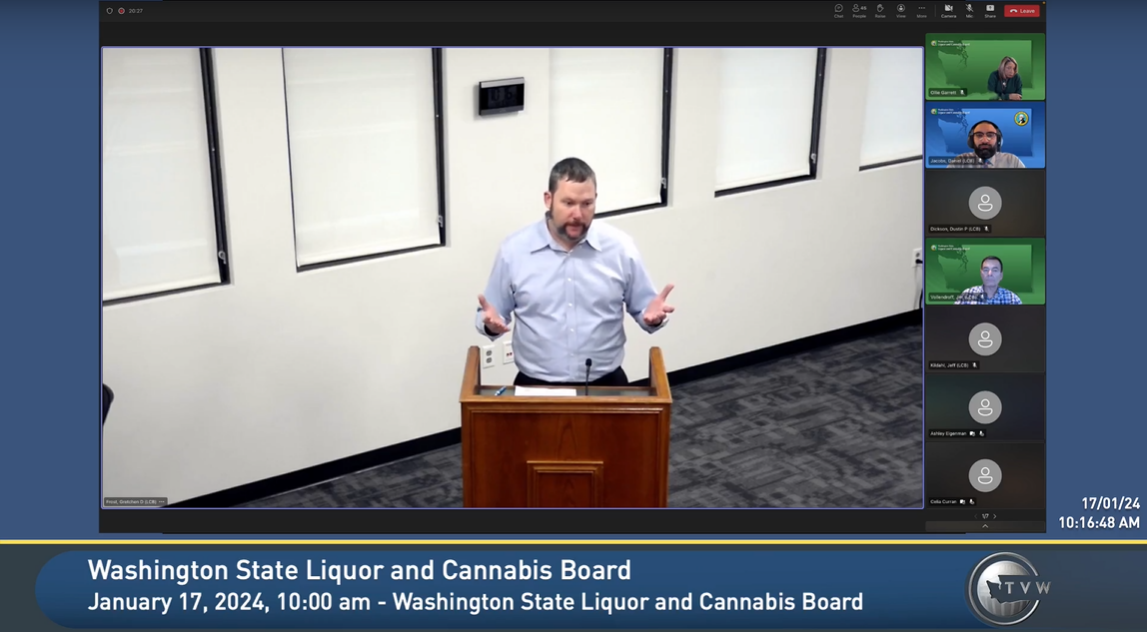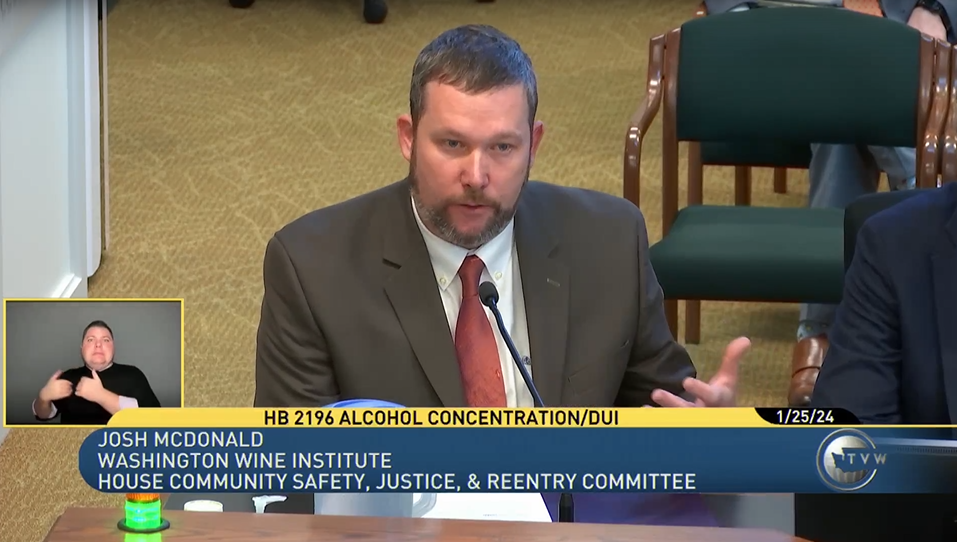Month: February 2024
Virtual Listening Sessions on Nutritional Labeling and Advertising of Wine, Distilled Spirits, and Malt Beverages with Alcohol Content
The Alcohol and Tobacco Tax and Trade Bureau (TTB) is announcing two virtual listening sessions to receive input from the public on nutritional labeling of wine, distilled spirits, and malt beverages to disclose per-serving alcohol and nutritional information, major food allergens, and/or ingredients. These listening sessions are intended to engage the public, including consumers, public health stakeholders, and industry members of all sizes, and facilitate the public’s ability to provide input to inform rulemaking.
Virtual listening sessions will be held on the following days:
· February 28, 2024, 7 a.m. to 11 a.m. PST (register for February 28 session)
· February 29, 2024, 10 a.m. to 2 p.m. PST (register for February 29 session)
The deadline to register to virtually attend either session is noon EST, February 27, 2024. When registering, participants may indicate whether they wish to speak at one of the sessions. Requests to speak during one of the listening sessions must be submitted by noon EST, on February 26, 2024. If all registered speakers have had an opportunity to speak, the session may conclude early.
Written comments may be submitted electronically or via postal mail and must be submitted or postmarked by 11:59 p.m. EST, March 29, 2024, using the instructions provided in Notice No. 232. To view all documents and comments related to this notice, see Docket No. TTB-2024-0002 at Regulations.gov.
To facilitate input from the public, TTB has developed a list of questions. TTB encourages commenters to explain the rationale behind their comments and to include any available supporting data and other information, as appropriate.
Visit TTB.gov for additional details about the listening sessions.
LCB Adopts MAST 13 Allowances
The Washington State Liquor and Cannabis Board (LCB) adopted rules January 31 amending multiple sections of rule related to alcohol delivery, outdoor alcohol service, and MAST 13 permit holders.
Effective March 2, wineries may allow 18-20 year old MAST holding employees to pour wine and beer away from the table and similar additional allowances for wineries during Covid-era operations after the Washington Wine Institute filed the CR 101 with the LCB one year ago and worked alongside WWI members to advocate for this change.
After this allowance expired in September 2022, the LCB received a petition for rulemaking that sought to amend WAC 314-17-015 and make this a permanent part of rule, allowing MAST 13 permit holders to pour beer and wine away from the customer’s table. In January 2023, the LCB accepted this petition for rulemaking. This rulemaking project began in March 2023, and was later combined with the SSB 5448 rulemaking.
| WWI testified before the LCB January 24 on rulemaking we’ve engaged in over 2023 pertaining to alcohol to go/outdoor seating and MAST 13 rules initiated from the passage of SB 5448 in last year’s legislative session. |  |
The rule also modifies allowances to outdoor alcohol service, which removes language to make clear that outdoor food service is not required for businesses that are not required to serve food indoors.
– Concise Explanatory Statement
– CR 103 filed as WSR 24-04-042 on January 31, 2024
More information is available on the LCB Current Rulemaking Activity webpage. If you have any questions regarding this announcement, please contact rules@lcb.wa.gov. To sign up to receive email announcements for all LCB rulemaking activities visit the agency’s sign-up page. There you can register to receive updates and announcements for a wide variety of agency topics.
WWI Joins Hospitality and Brewers in Testifying in Strong Opposition to HB 2196 the .05 BAC Bill
The House Community Safety, Justice, and Reentry Committee held a public hearing on Thursday for HB 2196 the .05 BAC bill. We are communicating with all of our members and the industry to join us in vocal opposition to the bill.
| We joined the Washington Hospitality Association and the Washington Brewers Guild testifying in opposition to the myriad of reasons why this policy proposal will not achieve the laudable goal of reducing DUI-related fatalities in Washington. |  |
Instead, we believe the bill will only harm our hospitality industry, especially wineries and other liquor licensees located in rural areas of our state. We spoke to such valid points as:
– 49 of 50 states in our country have a .08 BAC law that is based in scientific research and was set with guidance from law enforcement many years ago. Utah is the only state with a .05 BAC law.
– Utah’s own data shows that for three years after the law’s implementation, 2020-2022, the unfortunate reality for their state was seeing alcohol-related fatalities increase each year.
– There is no scientifically valid training for a server to identify a customer at a .05 level, making this practically impossible to implement as a useful tool.
– Washington State Patrol and police officers overall are currently legally allowed to arrest any person for a DUI at any level of impairment, giving them discretion before making an arrest. This law would significantly narrow that discretion.
– High BAC drivers and repeat offenders are the real problem. Focusing on getting these people off the road who clearly have complete disregard for the safety of others should be our state’s top priority. Let’s work together to strengthen existing DUI laws and reduce the number of these instances on our roadways.
We will continue to speak to Democrats and Republicans on the Committee and as many as we can in the State House asking to oppose this bill and instead work with all stakeholders on solutions that will meaningfully lower DUI-related arrests and fatalities and make Washington State roads safer for all to use each year.
A big “THANK YOU” to every WWI member willing to use our Action Alert in last week’s newsletter to sign in “Con” on HB 2196 and add your voice to the process in hopes we together can make a difference. We are incredibly grateful, and we will likely ask for your help again if this bill advances to the next step in the legislative process. We will as always keep our members up to date as is possible on the current status of this bill and all bills we are engaged on during the 2024 legislative session.
 Member Login
Member Login
